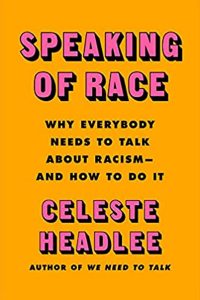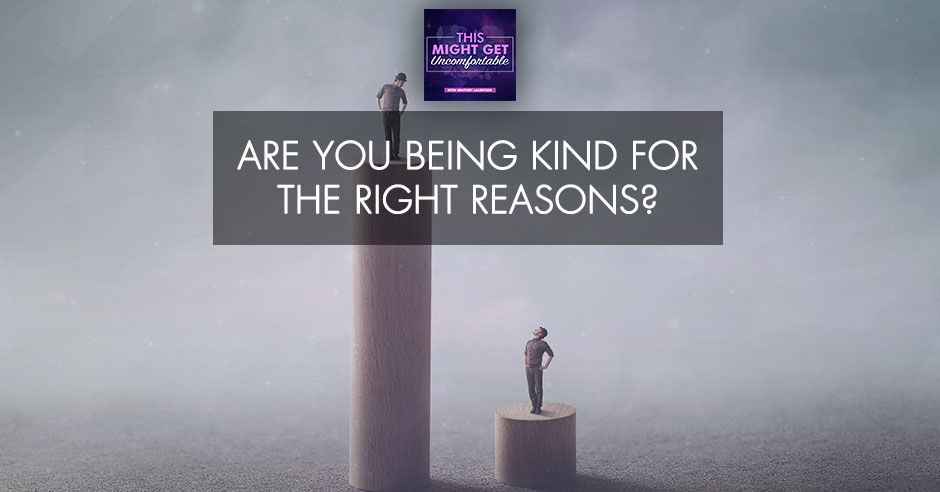
At some point in our lives, we strive for equality in the world, but it isn’t very easy. It might sound simple to tell ourselves to be nice to one another and treat everyone with the same respect. Unfortunately, that’s not how our world goes. Racism, prejudice, gender inequality, and other issues are present every day. We may not admit it or not, but we treat someone differently based on how they look or how we feel about them. But that contributes to social inequality in the world. Listen to your host Whitney Lauritsen as she dives deep into being kind for the right reasons and reevaluating the value of our niceness to other people. What is the difference between being nice, kind, and ethical? Stay tuned!
—
Listen to the podcast here
Are You Being Kind For The Right Reasons?
This episode is inspired by a reader who suggested this subject matter. Before I get into this, I have to share behind the scenes. I don’t know why but I have had an immense amount of energy in a very unusual way. It has been fascinating for me, especially as I have been extra reflective. What I am interested in is trying to understand why I have so much energy, which may not seem that interesting but for context, I have been struggling for years.
The reason I know that is because at the beginning of 2020, before the pandemic hit in the United States, I remember feeling that January 2020 was so drained and burnt out. I wanted to rest but I didn’t feel like I could. I know that’s such a relatable thing. Many people have shared that. Many people said they felt a sense of relief in March 2020 when the pandemic started because we collectively had permission to stop.
Honestly, I know I’m not alone in this but to speak truly from my perspective, any time that COVID cases rise, and this has nothing to do with other people’s poor health, although I guess it does. It’s uncomfortable to even acknowledge this but I will do it anyway. The idea of needing to lockdown, protect myself, stay inside and not socialize excites me because I’m looking for permission to not do as much. This has been an ongoing subject matter on the show. This idea of going against the grain of hustle culture and allowing ourselves to rest, take breaks, slow down and pause, whatever that means for you, even though it’s not available to everyone. When it is available to us or if it’s available to us, if you are anything like me, I savor that.
That may be because of my circumstances and personality. There is a lot involved, and it’s very relative. That ties into the energy that I felt and the reason that I feel so much energy, which is not incredibly unusual for me but it’s different than usual in the sense that usually around this time, I’m winding down. I feel like I took some energy drink but I didn’t. As far as I can recall, I haven’t had caffeine. I don’t know where this is coming from. It’s interesting to me because I have noticed, and this has nothing to do with our topic, but it felt important to mention because it has been helpful for me to pay attention to my energy.
There are times where I have such low energy that I am craving a slow pace, and I don’t feel like I can get through my to-do list but because my brain is so used to hustle culture and productivity, I have been conditioned to that and wrapped up into it. Perhaps I have been addicted to efficiency. When I feel guilt or shame, I don’t feel productive. A lot of the time, I’m not as productive as I would like to be because I’m low energy. On moments like this, where I feel this immense amount of energy, it’s very exciting to me because I can finally get more done than usual but that in itself is interesting.
I have this sense of a reward mechanism of like, “You are productive, thus, you feel good,” versus, “You are not productive, thus, you feel bad.” I want to break that cycle. I don’t think that’s a good thing. I think that’s disturbing. That ties into some of the themes specifically because one of my favorite guest episodes on the show was with the author Celeste Headlee. I’m going to mention her book but her previous book is called Do Nothing. It was such an honor to have her on the show. If you have not read to that episode yet, please do.
I geeked out over it. I felt so nervous about having her on the show. I feel like I did not do a great job because I was nervous. I don’t know why. At the time, I felt very intimidated by Celeste because she is such a phenomenal writer, speaker and journalist. When there’s somebody that you perceive to be much more experienced and accomplished than you, it can be very intimidating. I wanted to do a great job. I wanted to represent her. The episode got off to a weird note plus also, behind the scenes. That was one of the very few times that a big tech challenge happened.
We had to redo the ending of that episode. It was such an awful feeling having to email Celeste and her team and tell them that part of the episode got messed up and ask her if she would rerecord so that we could release it properly. She was gracious in doing so but I felt like it was a sign that it wasn’t a professional. Perhaps I was all in my head.
I wanted to invite her back to the show to talk about her book, which I’m going to get into. I’m too afraid that she didn’t have a good experience. I will get over it one day and find the courage and bravery because I could listen to her speak all the time, and I want to make sure you know about her work. Her book is about racism.
Nice White Woman: An Anecdote
This ties into a little anecdote I want to share with you before I get into the main subject of this episode. Given the immense amount of energy I had, I went to two grocery stores, which was a little uncomfortable also given COVID. I’m trying not to go out too much. I’m trying to space out my shopping but shopping brings me joy. I wanted to go to both Trader Joe’s and Sprouts Market. For those of you that don’t have one in your area, it’s a combination of Whole Foods and Trader Joe’s. I love Sprouts.
If I had to pick one store to go to, it would probably be Sprouts because they have the price points similar to Trader Joe’s but a lot of the products that you could find at Whole Foods at a much lower price, plus they have their items and store brand similar to both Trader Joe’s and Whole Foods. They have amazing sales. I was there right after the end of the official 2021 holidays Christmas. They were getting rid of all their holiday food inventory. A clearance. I was so excited because my favorite gluten-free pie crust was only $0.99. It’s normally $6.99.
I could not believe it. They had spices on sale. They had all this stuff that if you wanted to use it throughout the year and you didn’t mind that it was a “holiday-related food,” you could get an amazing deal on it. That was very exciting. At the checkout counter, there was this cashier who was new to the store. I didn’t recognize this cashier.
The truth is that everyone is biased. Share on XI would go to this location often enough to know some of the cashiers there but it was mostly because this cashier didn’t seem to know how to troubleshoot things. I’ve got some spices from the bulk bins at Sprouts, which is another reason I like this store. You can get a small amount of spices instead of buying an entire jar, which saves money and some packaging.
I brought over the spices. The first issue was that the code of the bulk bin code wasn’t registering in the cashier system. I went back to double-check and was like, “That’s the right code. I don’t know what’s going on.” The cashier realized that it was because it was such a small amount of spice that it didn’t weigh enough to register in the register. The cashier didn’t know what to do, being new to the position.
I found myself going out of my way to be nice, accommodating, and understanding. Long story short, without getting into more details, the cashier didn’t feel like they were being super accommodating to me that they were saying, “I don’t know what to do,” versus, “Let’s try to figure this out,” as some cashiers do.
I felt compassion for this person. I didn’t want to inconvenience them. After I left, I was reflecting on why I felt I was going above and beyond to be nice or kind to this person. Frankly, I realized that one of the reasons was the way this person looked. This person was Black and either transgender or non-binary, I’m not sure. I felt like this familiar feeling of almost wanting to be the nice White woman. That’s an uncomfortable thing to admit but it’s something that I reflect on a lot as I study racism. Work on being anti-racist and a better ally.
I find myself being afraid to be that stereotypical, in some ways, White person or that stereotypical White woman specifically. It’s not specifically age-related but I’m probably to some people borderline in that Karen age range. I don’t know what the age of a Karen is. I’m a Millennial. A lot of Karen’s are associated with being a Boomer or Gen X. I feel like generally, it’s associated with women that are older than me and White.
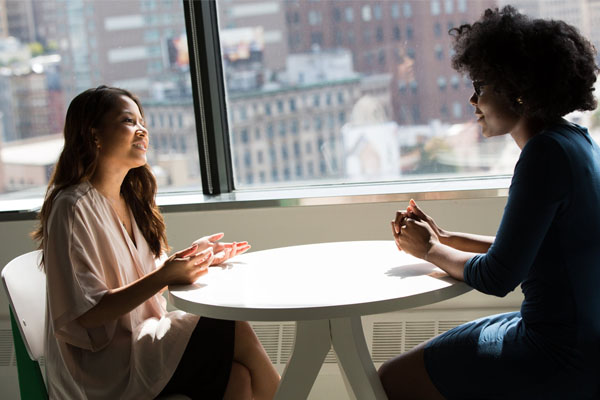
Being Kind: It could just be prejudices and judgments and biases that we have towards other people, like noticing our behavior, even when it’s positive and how that is part of treating someone a certain way, because we, who we perceive them to be.
I have this fear of being perceived as a Karen. I have a fear of being racist or outwardly racist. I have a fear of not being inclusive. Sometimes I find myself going above and beyond, especially to people who aren’t White and maybe not cis-gendered or people that are non-binary. I want them to know that I respect and appreciate them. I want them to feel included.
I wonder if that in itself is racist. This is where Celeste Headlee’s book comes in. Her new book is called Speaking of Race: Why Everyone Needs to Talk about Racism–And How to Do It. I made it through three-quarters of the audiobook and only the first-fourth of the written book. I’m reading both because this book is fantastic. Celeste herself read the audiobook. I geek out over her work and voice. Her writing is so wonderful that I tend to read her books multiple times. I bring up the book because it’s my favorite resource on racism at this moment. It feels like it’s helping me understand things on a whole other level. I have read several books about racism since things happened in June 2020.
I became very clear about how I participated in this. One of the lines in Celeste’s books says, “If someone suggests that you are prejudiced, the most accurate response is, ‘Yes, you are right. I am.’” The truth is that everyone is biased and knowing that, which has come up in several books about racism, it’s humbling but it’s very helpful to acknowledge the fact that I’m racist.
Even though I feel like I’m actively trying not to be racist through all of my research and reading on racism, I’m realizing more because I’m White and raised in a very racist country, I can’t help it. It feels awkward to talk about but as Celeste said, everyone needs to talk about racism. It’s important to talk about, even if we are stumbling through like I am.
This experience at the grocery store was me reflecting on my racism. Why is it that I’m treating someone differently? Celeste says in her book, “A racist is someone who makes assumptions about another person, either positive or negative because of their perceived race or ethnicity.” That’s exactly what I did. It seems like maybe I wasn’t making an assumption but I was. I assumed that this person, because of the way that they look, was assuming something about me. I was trying to compensate for it, overcompensate or negate it in some way, trying to protect myself or protect them in some way, doing them a service. There are so many layers to this.
A racist is someone who makes assumptions about another person, either positive or negative because of their perceived race or ethnicity. Share on XI was fascinated by myself, not in an ego way but this is something that I want to examine. This is part of the reason I feel like it’s so important for me and hopefully others to study racism. Noticing even the times where we feel like we are doing something either innocent or kind, that’s still maybe a reflection of our racism or biases. It doesn’t have to be about race exactly. It could be prejudices, judgments, and biases that we have towards other people. Noticing our behavior, even when it’s positive and how that is part of treating someone a certain way because of who we perceive them to be.
Being Kind Vs. Being Nice
This all leads into the topic that Rye, the reader of the show, suggested around why you should be kind instead of nice. What’s interesting is I read this article that Rye sent along. This is on Lifehacker.com. I’m wondering a few quotes here for you but also because I’m still processing the difference between what it means to be kind versus nice.
The article starts off saying that, “It has felt particularly over the past year that people aren’t being especially nice to each other.” That’s mostly about COVID. I find that line interesting. Part of it ties into my experience because, in addition to behaving in a certain way to this cashier because of how I perceive them to be as a person, there was this level of wanting to go above and beyond to cashiers in general.
I have seen some horrific videos and social media posts about what people in all types of customer service positions have gone through, especially in retail. It is awful. There is a lot of entitlement that goes on from customers. I don’t want to be that type of entitled customer. In this little moment with that cashier, I didn’t want to make a fuss over the fact that this cashier was struggling versus some people that I have seen in videos would be rude in a situation like that. I found myself compensating for other people or trying to make up for it like, “I’m assuming that this cashier has had bad experiences with other customers, so I want to go above and beyond to be the opposite of that.”
I also find it’s odd that this article is saying people haven’t been nice to each other during the pandemic but I suppose that’s true. There has been a lot of division. We have had a lot of things going on politically, especially in the US. We have had a lot of different opinions on how to react to the pandemic. People want to make different decisions. People have different beliefs around this, and this has led to arguments, fights, aggression, resentment, and so many things that I suppose come out in our behavior to one another.
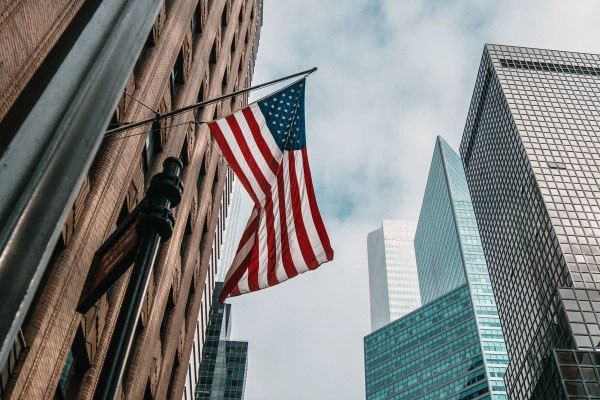
Being Kind: We’ve had a lot of things going on, especially in the US. We have had a lot of different opinions on how to react to the pandemic. People want to make different decisions, different beliefs and this has led to arguments.
I suppose this article is true. The article says that, “It’s time to reevaluate the value of niceness because kindness is much more important, and they are not the same thing.” You can be kind without being nice, and you can be nice without being kind. Kindness addresses the need, regardless of tone. In the article, there is a reference to a few different posts online from other people.
One of them said, “Do you want nice or do you want honest? Do you want nice or do you want kind? Do you want nice or do you want ethical? Do you want nice or do you want effective?” Interesting questions. Maybe some of these things we assume to be all part of one another but perhaps they are either separate or opposite.
That first line about being nice versus honest is interesting. In the context of my experience, I felt like I was being nice. Honesty was tied in but in a way evaluating being honest. To me, honesty in that situation is being transparent, real and authentic. If I am treating someone a certain way because of what they look like, is that honest or authentic? If I’m going above and beyond, almost as if I’m representing myself as a nice person when I have a different motive or reason behind my behavior, it’s something to examine. The same thing with, “Do you want nice or do you want ethical? Is it ethical for me to treat someone differently because of the way that they look?”
I believe the answer to be no because deep down, I want to treat everyone equally. That’s still a big question mark in terms of how possible that is. I hope that on some level, I strive for equality but it’s complicated, the more I learn about racism specifically. “What does being ethical look like without being nice?” This is an interesting question, too. I have had experiences with people, and Celeste might have brought this up in the book where it’s hard in situations where somebody is behaving in a way that you don’t believe to be ethical.
Honesty is being transparent, real, and authentic. Share on XA great example of this is veganism. Many vegans and I have expressed that it is very uncomfortable to be around people who live or eat differently than you because it is in opposition to your ethics. Oftentimes vegans feel like they need to be nice and ignore their ethics because they want to please others. They don’t want to make others uncomfortable.
I don’t necessarily do this. I can’t think of an example of it but I have heard others who will eat non-vegan food simply because they want to be nice. They are afraid of standing up for themselves and thus their ethics and the way that they eat because it feels more important at that moment for them to be kind to people by accepting their food.
They feel like they would be rude to turn down their food. I have especially heard this in the context of going to different countries or being in situations with different cultures where it is perceived as rude if you don’t accept somebody’s food. A family member or someone important in your life makes you something, and they put all this heart into it, you may feel it’s rude to turn it down, despite it not matching your ethics. That’s always disturbed me because I understand the desire to please others and not be rude.
I would rather be rude and in alignment with my ethics, and the same thing comes up. With COVID, it can be incredibly uncomfortable to talk about your COVID preferences and beliefs with somebody who has different preferences and beliefs. I value my safety and health and other people’s safety and health. I feel like I have to stand up for myself, even if I’m afraid it’s going to make someone upset. Many of us have been in those situations. I feel like most of us, if not all of us have.
Going back to this article, “Think of kindness as the act that accompanies or replaces your words. It’s silently helping a struggling mom of three kids unload her groceries into her trunk rather than smiling and saying, ‘You are doing a great job, Mama.’ It’s bringing a pot of soup to your sick friend rather than saying sympathetically, ‘Hope they feel better soon.’ You are kind if you shovel your neighbor’s car out from a pile of snow, stop to help a stranger change a tire or pause to give a lost person some directions.”

Being Kind: It’s time to reevaluate the value of niceness because kindness is much more important and they are not the same thing. You can be kind without being nice and you can be nice without being kind.
In this way, I suppose I could say that I was being kind to this cashier. Looking back on my actions in the context of this experience, maybe I was being nice. Was I being kind? What was the act there? My view of my act was when this cashier was struggling with the spices ultimately, we resolved at the cashier, made up a price. Part of me wanted to calculate the right pricing and make sure that I wasn’t overpaying but I felt like I was being nice, and perhaps my kind act, if there was one there, was accepting the price that they offered to me quickly so that they could move on to the next person.
Was that kind or was that nice? I still have to reflect on that. There are moments where I have been faced with the decision of saying something nice versus doing something kind or both combined. One that comes to mind for me also happens to be in the context of a grocery store or something that a stranger dropped something. You could say something kind to them like, “Don’t worry about it. It’s okay. I have been through that myself,” versus going and helping them pick something up.
I love doing stuff like that but I also recognize that it feels so good to help someone. I feel like a better person, “Look at me. Look what I did for this stranger. Look how I went on the way.” There is also this self-serving side of it that’s not altruistic. When I was studying Psychology in college or high school, we talked about whether or not altruism exists. Are we ever doing something truly for others or are we always motivated deep down because of the reward or good feeling that doing something kind gives us inside?
Is it possible for something not to be about us? As human beings, we feel this motivation to do things for other people because it makes us feel good, and we are good people. The article ends with this line, “If the current state of things has worn us down so that we need to rebuild one skill at a time, start with kindness.” Given the clarity of kindness here, that’s important. That’s why I picked this topic for this episode because it’s still the beginning of 2022. We are rebuilding, even though we are still going through the pandemic, at least as far as I know. Every day it seems to be changing but we can still rebuild amid change.
Many of us feel like we're suffering. It's hard sometimes to be kind when you yourself are struggling. Share on XWe are rebuilding personally on a lot of levels at the beginning of 2022, and collectively we are doing so. It seems obvious to lead with kindness but it takes a lot of awareness and intention. Maybe that’s because so many of us feel like we are suffering. In the previous episode, I talked about depression, anxiety, stress, and blues. How it’s hard sometimes to be kind when you are struggling.
That was also something that I reflected on with the cashier because as I was thinking about why I felt I “went above and beyond,” when in hindsight, it’s not like I did this great act to this cashier. Maybe by telling you this story, you are thinking, “Whitney, that wasn’t that big of an act of kindness or being nice.”
At the moment, it was more me thinking it was a big deal because of realizing who I was interacting with and why I felt motivated. That felt big to me because I had to examine racism and prejudice within myself. I also felt this level of wanting to be extra nice and/or kind to cashiers because I associate them with not experiencing a lot of kindness.
I have had so many experiences of asking a stranger that works in any customer service or service role of asking them how they are doing, and their response to be either, “You are the first person to ask me that today. Thank you for asking.” I feel a little taken aback like, “No one has asked you how you are doing? That’s sad,” them telling me very honestly how they are feeling.
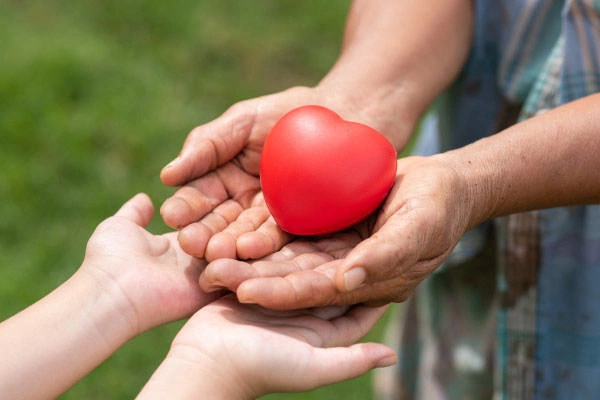
Being Kind: Think of kindness as the act that accompanies or replaces your words. It’s bringing a pot of soup to your sick friend rather than sympathetically telling them to feel better soon.
That has become the norm. I built this habit of asking cashiers in particular how they are doing and trying to ask it genuinely, make eye contact with them, try to indicate to them that I am curious versus that typical, “How are you doing?” “I’m good.” “How are you?” “I’m good.” It’s a small talk or weird affiliate in the awkward silence while they are scanning our items. I try to ask genuinely so that they feel like they are being seen as a real person.
I noticed that also with this cashier and the racism level. I wanted this person to feel seen as a person, not someone in a role, and not ignored because of the way they look, which the more I study racism and see how poorly people that are not White, cisgender, non-binary so many people that are “different” or maybe not even different but treated differently because of who they are and how they look. Many people feel ignored, brushed aside or treated poorly. I need to acknowledge them as being equal to me, valuable and respected.
That’s what it is, too. I want them to feel seen and respected. Making eye contact, thanking them, asking them these deep questions feels important to me. The other level of this is knowing that a lot of them are struggling like we are. Thinking about, “Can I put myself in this person’s shoes? Have they been treated poorly? Would it make them feel better to have one nice exchange? If I’m the only person that’s kind or nice to them that shift at work, that means something perhaps in their day. Maybe that makes their day a little bit better.”
Am I putting myself in their shoes and thinking about, “Are their feet sore because they have been standing all day at work?” I used to work retail, and I’ve got so tired. Even barely doing anything at work, being in a customer service retail environment feels draining and exhausting if you have never done it before. It’s the same thing with the waitstaff at a restaurant. That’s such a hard job. I saw some TikTok videos or something about how incredibly, mentally hard that work is, especially during COVID.
Going back to this article and acknowledging the current state of things, can we go out of our way to be kind as much as possible even if we are struggling? This is something that I brought up in the previous episode. If you are struggling, one of the best ways for you to feel better is to be nice or do something kind. Even if you are motivated to do something kind to someone simply because it makes you feel better, that’s not a horrible thing. It’s still kind.
Even if that person knows that you are being kind to make yourself feel better, it’s still important to do. This all ties into our deeper motivations. This is a complicated thing the more I reflect on this, and maybe it seems silly to go into such detail but I’m fascinated by human behavior and motivation. The other thing that was interesting that this article very gently touched upon was, for some reason, it fixated or gave examples on people from the East Coast of the United States versus the West Coast. I was especially fascinated by this because I grew up on the East Coast, and I have been living on the West Coast. I’m getting close to about half and half of my life on each Coast.
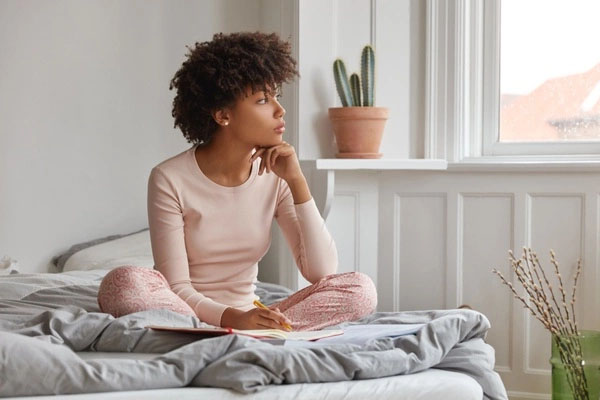
Being Kind: We’re rebuilding, even though we’re still going through the pandemic. And it seems obvious to lead with kindness, but it takes a lot of awareness and intention.
They feel like they have been equally influential even though our brains are so formed by our childhoods. My development on the East Coast is very different from how I have developed as an adult on the West Coast. There are all these debates in the common section of this Lifehacker article about how each Coast is so different.
That in itself felt weird to me because I have met plenty of people on the West Coast that remind me of people on the East Coast and vice versa. People will say that East Coast people tend to be formal. Their manners are very driven by providing for other people’s needs versus people on the West Coast are nice but they are not prescriptive or not about helping you. They are nice versus kind, where maybe East Coasters are kind but not necessarily nice.
Gender And Being Nice
You could say that’s true but also it depends on where you are at on each Coast. There are a lot of different cities in parts of each Coast. I thought that was fascinating given my history. The other thing I wanted to touch upon was some questions that Rye had asked in the context of this article. One question was, “Have you experienced any of the things listed in this article because of your gender or felt that things were done based on the situation that you were in around certain people?”
This is fascinating. People have treated me differently because of my gender. As a woman, sometimes it works to your advantage but that also depends on how you look. You can be a certain gender, and maybe you sexualize yourself and are treated differently because of how you are dressing, walking and acting. I tend to feel less confident when I’m not wearing makeup, do my hair in a certain way or clothes, even though I rarely wear makeup, do my hair or fixate on my clothes. It’s not something that I’m passionate about, and I don’t want to be judged for those things.
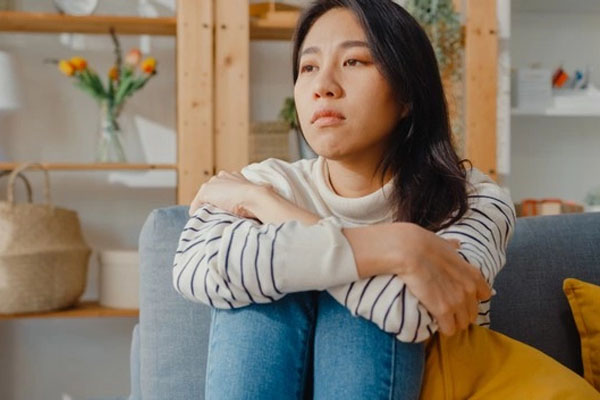
Being Kind: So many people feel ignored or brushed aside or treated poorly.
Simultaneously, I feel uncomfortable. I’m afraid that people will think less of me because I’m not dressing up and I’m not pleasing the male gay. This is a subject matter. I want to dive into it on another episode. The quick answer is yes. Some people have been nice to me because I’m a woman. Sometimes that’s men or other women. It all depends on the case but I have experienced it. Sometimes people may not be very nice to me because I’m a woman. It goes back to my original example. Being a White woman, sometimes I perceive non-White people as treating me differently because I’m a White woman.
I brought this up on an episode. I asked one of our non-White guests about White women being terrifying to non-White people, “How White women, in particular, can feel more intimidating than White men?” That was a surprise to me. I can’t remember if I read that in a book, an article or saw it in a TikTok video, and that’s why I brought it up in the previous episode. I read or saw this comment somewhere and brought it up to a guest. The guest said, “White women, in particular, can be very intimidating or scary for a non-White person.” That’s because White women tend to get a lot of sympathy from police, the government, and other White people.
White women have a history of playing the victim or manipulating people because of their race, gender, and color of their skin. That’s not something I have ever had to think about until somebody pointed it out. That in itself is a privilege and that’s part of racism. This is what I mean. There are so many things that go on that we don’t even know until someone points it out because they have been impacted by it. That also ties into my whole behavior. I don’t want to participate in that but sometimes I don’t know if I can help it. That’s part of the system.
Another question was, “Are you being favored by being a certain gender or type of person?” Yes. I believe so. Another question was, “Do you feel like being nice or kind to a person of the same gender, or gender presenting can feel weird or uncool by society?” That’s interesting. As a woman, generally, there is this feminine energy where it’s acceptable for women to be nice and kind to other women, men, and people, regardless of their gender or gender presenting. For men or people that are identifying as men, there is a big stereotype that it can be weird if they are nice to other men, male presenting people or maybe even non-binary people.
Certainly there are moments where I've been faced with the decision of saying something nice versus doing something kind or both combined. Share on XI’m not a man nor do I identify as one. I haven’t had that experience. This is where Jason’s perspective, as a former host, would have come in handy. Every person has a different experience and perspective on this based on how they relate to the world, how they have been treated, and what they look like. There are so many factors in all of this.
Gender fluidity and non-binary is becoming increasingly important because these whole gender stereotypes and roles are so frustrating. Few things have to do with it. I have been increasingly irritated by gender reveal parties. It’s something that I would love to get into with a guest who is much more knowledgeable on this.
Isn’t it bizarre? If you think about it, the fact that we celebrate a baby’s gender before they were even born is immediately placing them into categories in our brains, placing them into context and other people’s lives, and then projecting things onto this child before it’s even out of the womb. That’s so strange. It’s no wonder that we have these types of questions. “Can we be nice to someone of the same gender? Can we be kind? Is it weird to be kind? Is it uncool? Is it unacceptable?” If we truly want equality, it shouldn’t have anything to do with gender how somebody presents themselves. It does. That in itself is so bizarre.
Kindness Takes Practice
The last question that Rye asked in the context of this article is something I have already addressed, which is I’m noticing this amongst other people in other racial groups. The answer is yes. We do tend to treat people in certain ways and maybe make decisions about how nice and kind we are, what actions we take because of how someone looks or because of the category that we are placing them into for a variety of reasons. Ultimately, if it isn’t clear already, I would like to see us treat people kindly and be nice to everybody.
It truly takes practice. There may be a reason why you don’t have the energy to put effort into being nice and kind and that’s okay. We are human beings. We are flawed. As I started this episode with me knowing what it’s like to feel low energy, to want to be introverted, and be grateful for COVID because that “gives me permission” to slow down, even though that’s messed up when I think about it. I’m grateful when there is a lockdown happening because the hospitals are overflowing. When I stop and think about it, I want to shift the way that I feel because I certainly don’t want to be grateful for other people’s misfortunes.
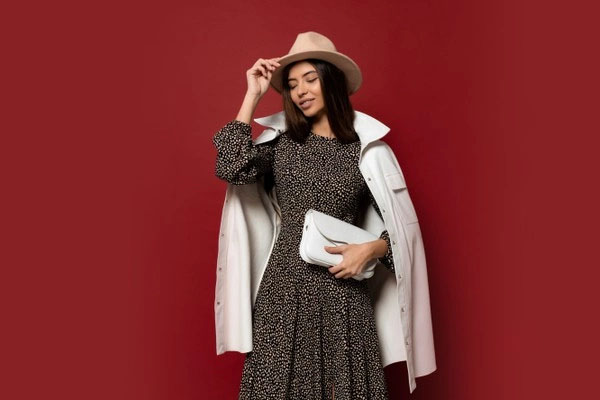
Being Kind: You can be a certain gender and maybe you sexualize yourself and are treated differently because of how you’re dressing because of how you’re walking because of how you’re acting.
It also shows something that I’m noticing a lot of people that our society in the way that it’s structured, especially due to capitalism, we have this pressure to hustle, productive and efficient, make money and go. The only time that we feel like we have permission to stop is when either we are sick or other people are sick. That’s not right in my book. I don’t want to not be nice or be unkind to someone because of who I perceive them to be. I don’t want to put myself first and think that I’m more important than them and my priorities come before them. Ideally, that’s not how I would operate.
I also have to recognize that in many ways, we do need to put the oxygen mask on first. That gives us a good reason to stay home if we are not feeling good and have low energy to avoid other people. If you are in a bad mood or not feeling good, maybe don’t socialize. If that puts you at risk of being unkind and not very nice to someone, it’s not good for anyone. Take care of yourself first, so you have the energy, motivation, and ability to be nice and kind. That’s a good note to end on.
I would love to hear your thoughts. This is a lot more of a deeper subject matter than I ever thought, the subject of being nice and kind and the differences between the two. Thank you to Rye for sharing this article and asking the questions. Thank you for reading. As I have said many times before, I love hearing from you. It makes my day when I get an email or a social media message from people like you, who read to the show, have something more to say about it, and want to talk about it in the depth of their reflections on it. It helps me become a better host, come up with other ideas, recognize how this show impacts your life. If you have feedback, requests or topics in mind like Rye did, please send them to me.
Anything you want to say. Send me an email or a DM at Wellevatr.com. I have so many great guests lined up for you. I have been trying to find all sorts of unique people that I haven’t talked to about certain subject matters, people from around the world, and different backgrounds. True diversity in every sense of it.
If you also have a guest recommendation or a specific type of guest you would like to have on the show, please let me know, and I will go seek them out or take your recommendation and contact them. It brings me so much joy to have all different voices on the show. I hope you enjoy it, too. I’m wishing you all the very best. In the meantime, take care of yourself. Be nice and kind.
Important Links
- Celeste Headlee – Past episode
- Do Nothing
- Speaking of Race: Why Everyone Needs to Talk about Racism–And How to Do It
- LifeHacker.com
- Why You Should Be Kind Instead of Nice
- Previous episode – Feeling Into The Post-Holiday Blues
- Previous episode – The Need For Conversations Around Black Women’s Mental Health And Healing
Love the show? Subscribe, rate, review, and share!
Join the This Might Get Uncomfortable community today:

